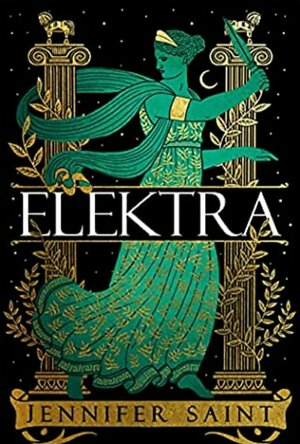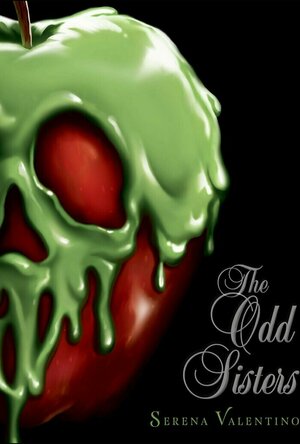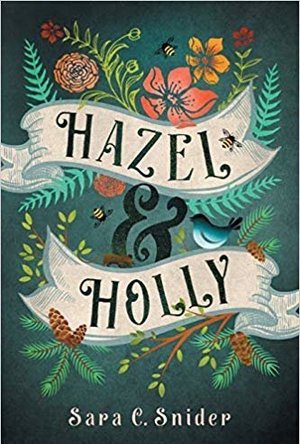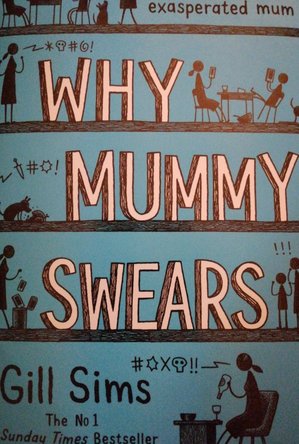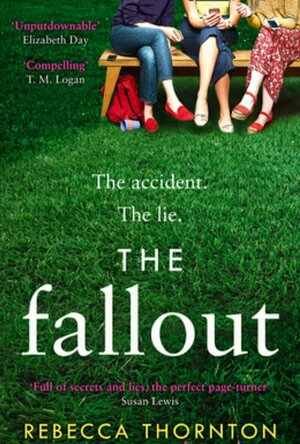Elektra by Jennifer Saint is told from three female perspectives: Clytemnestra, the sister of Helen, the wife of Agamemnon; Cassandra, a Princess of Troy; and Elektra, Clytemnestra and Agamemnon’s youngest daughter.
The things these women had to put up with! Clytemnestra’s husband Agamemnon, acts like a madman (but it’s ok, it’s all for the Gods!) and she’s supposed to accept it all. Except she doesn’t.
Cassandra is treated like a madwoman after she’s cursed by Apollo. She can tell the future, but no-one believes her. So they only have themselves to blame when Troy is destroyed.
And then there’s Elektra. She seems to have fully bought into the whole “men/ daddy knows best, and anyway, he’s a hero” story. She’s a young woman who adores her father and believes he can do no wrong. She can’t understand her mothers reaction to the sacrifice of her eldest daughter and Elektra’s sister. Can we blame Elektra though? Probably. She certainly knows how to play the long game.
The narrators were well chosen, and really helped to add life and vigour to the characters of the three women. Listening to these Greek myths haas added something extra special to the stories - after all, I’ve read these stories so many times over the years in different forms. And I still can’t see a time where they’ll get old. In every retelling there’s a different angle, and I don’t think I can express enough how much I enjoy the story told from the women’s points of view.
Elektra is just fabulous - a timeless story about strong women.
Laura Doe (1350 KP) rated The Odd Sisters: A Villains Novel (Villains #6) in Books
Jan 13, 2022
Although it’s been a while since I read Mother Knows Best, the story is so easy to follow that it really didn’t matter and it all came flooding back to me as I read on.
We follow Circe and Snow White as they try to understand the Odd Sisters before they find a way to get themselves out of the dreamscape to continue wreaking havoc on the world. Whilst trying to understand them, Snow White falls upon a story related to Gothel’s mother and grandmother but the last pages have been torn out of the book, Snow White knows that she must find those pages in order to understand the story fully and for her suspicions around Gothel and the Odd Sisters to be confirmed.
Meanwhile, in Fairyland, the fairies have heard that the Odd Sisters are trying to resurrect Maleficent in an attempt to use her to destroy Fairyland on their behalf. Will the Odd Sisters succeed? Or will Circe manage to stop her Mothers in time?
I love this series and love the imagination that goes in to the back story for each villain. But the theme of the Odd Sisters throughout each of the books is a very interesting one, and I find it interesting that there is a way to weave them into the chaos of each fairytale somehow. This book made me understand the sisters more, whilst finding out more about their background.
I’m very interested to see what happens in the next 2 books, which I’m sure I won’t be able to put down like I haven’t been able to put this one down!
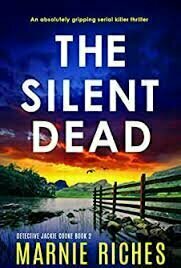
The Silent Dead (Detective Jackie Cooke #2)
Book
She was lying as if asleep on the wooden kitchen floor, beneath the fridge covered with a child’s...
Janeeny (200 KP) rated Hazel and Holly in Books
May 9, 2019
Holly and Hazel are two Witch sisters living in an idyllic little community called the Grove where Witches and Warlocks practice elemental magic.
However Hazel is unsettled in their comfortable little lives, as their estranged father has turned to the dark magic of Necromancy and trapped their dead mothers soul.
Hazel needs to muster all the strength she can, both magical and emotional to travel outside the safety of their little community to find their father and free their mother. With a little help from her sister Holly, a couple of Warlock brothers and a Cellar Gnome, of course.
This was a really enjoyable read, Hazel and Holly were both very well thought out characters that you couldnt help getting involved in their adventure. At one point whilst doing some housework I actually found myself thinking I wonder how Holly and Hazel are getting on? So I was definitely engaged. So it came as no surprise to me, whilst reading the authors notes, to learn that this was originally a flash fiction story that the author then expanded and serialised on her blog. Its that style of writing, that feeling of anticipation you get for the next part of the book that I feel keeps the reader engaged and wanting to read more.
Unfortunately Ash and Willow (Holly and Hazels parents) werent really substantial enough for my liking, despite the fact that the whole story revolves around the acts of these two characters there wasnt a lot of depth in them. However this doesnt detract from the story as Hazel and Holly (and also Hemlock and Hawthorn the two warlock brothers) are big enough characters in their own right to carry the story.
There is a promise of potentially more to come from these Sisters, I look forward to it.
TheBookMother (105 KP) rated Why Mummy Swears in Books
May 31, 2019
It was very similar to the previous book in the series but I was a tad disappointed.
Whilst the first book had a loose story line running through it, this book didn't seem to really go anywhere and there wasn't really anything it led to.
If you hadn't read the first book I think you would struggle to realize who everyone was (they were introduced in first book) and get all of the jokes that had come from the first.
It's set a few years after the first book and Ellen is still juggling family, home, work and Judgy Dog (my fav character!)
The humour was as good as ever but again I found some of it hard to relate to like being able to afford an au pair!
I felt we didn't really go anywhere with Ellen unlike the previous book where she designed and launched a successful app and began to find herself away from her 'mother role' and address the balance issues of work/family.
Again the book deals with some darker topics of parenting most of us know only too well. Judgement and treatment of mothers in the workplace, how society views mother's Vs father's in the workplace and the pressures of being a working mum. It also saw how much strain relationships come under when both spouses are working and raising a young family.
It was a good read but I was slightly disappointed and felt it wasn't as good as the first and was perhaps a bit stagnant.
Lindsay (1793 KP) rated An Amish Second Christmas in Books
Aug 30, 2018 (Updated Apr 9, 2019)
In Her Christmas Pen Pal, Joy has to deal with her boyfriend who want to see other women. She starts to write a letter to her cousin. Though it happens it sent to the wrong person. The mystery man writes back to Joy. The Cabinet maker and Joy send letter back and forth with each other. There are twist and turns in this story and has a good mystery in the story as well. Do Noah and Joy get together? This grandmother starts talking to Joy about her grandson. Will Joy find out that the woman was talking about?
In A Gift for Anne Marie, Anne Marie wondering about the changes that are coming. She finds out about her mothers letters. When she does she finds out that her mother is getting re-married and they are moving. Anne Marie does not like it at all. She start to feel the changes between her and Nathaniel. Nathaniel does not like the fact that Annie Marie may be moving. Is there anything either can do about it?
In The Christmas Aprons, Easter Glick is a nanny for her cousin until her cousin can deal with her baby. While here Easter receives her mother recipe that every popular. She learns what she want to to be accepted for herself and not though the pies she bakes. Will she learn about Love?
ClareR (6062 KP) rated The Fallout in Books
Dec 19, 2019
Sarah and Liza are best friends. Their eldest children are the same age, at the same London school, and they met at NCT classes before they had the babies. They both go to a local gym together, and their children go to classes and play there whilst their mothers chat and socialise. Liza has a small baby as well, and is very tired. So she asks Sarah if she’ll check on her older son, Jack, as he’s playing outside and out of sight. However, Sarah is distracted by the appearance of one of the NCT mums that they haven’t seen in a while. And she forgets. Jack has an accident. He falls from a high post and is seriously injured. Sarah then starts the lie that she can’t seem to get herself out of: that she saw Jack playing, and that he was nowhere near the post.
I have to admit that this was a supremely frustrating book. The other school mums and their WhatsApp group would have had me reaching for the ‘Leave Group’ button. Social media isn’t put in a very good light, and accurately portrays the ‘keyboard warriors’ that always come out of the woodwork when something bad happens.
I enjoyed this, whilst at the same time wanting to throw my iPad at the wall. I wanted to tell these women to find something better to do with their time! Gossip and rumour are rife. It’s a great look at human nature and it held my attention throughout - I was desperate to know what was going to happen each day in my Pigeonhole instalment.
Many thanks to The Pigeonhole, HarperCollins and the author, Rebecca Thornton for reading along. It was a great experience!
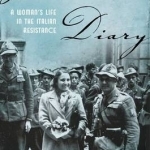
Partisan Diary: A Woman's Life in the Italian Resistance
Book
Ada Gobetti's Partisan Diary is both diary and memoir. From the German entry into Turin on 10...
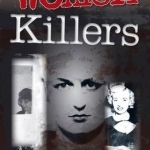
Crimes of the Century: Women Killers
Book
Murder is a terrifying factor of everyday life, but when the perpetrator is a woman, it somehow...
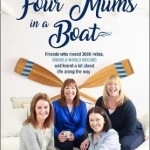
Four Mums in a Boat: Friends Who Rowed 3000 Miles, Broke a World Record and Learnt a Lot About Life Along the Way
Janette Benaddi, Helen Butters, Niki Doeg and Frances Davies
Book
A Sunday Times Bestseller The incredible true story of four ordinary working mums from Yorkshire who...
